Conference Schedule
| Time | Session | Hall |
|---|---|---|
| 12-10-2025 08:00 - 08:30 |
PLENARY LECTURE 01: MASLAND Emerging Immune Therapies for Neurological Diseases (CAR T) Sean Pittock (United States of America) |
Hall A |
| 12-10-2025 08:30 - 09:00 |
PLENARY LECTURE 02: YAHR New Therapies in Inherited Neuropathies Mary Reilly (United Kingdom) |
Hall A |
| 13-10-2025 08:00 - 08:30 |
PLENARY LECTURE 03: ALI LECTURE Stroke Charlotte Cordonnier (France) |
Hall A |
| 13-10-2025 09:00 - 10:30 |
PRESIDENTIAL SYMPOSIUM, WFN MEDALS PRESENTATION & PRESIDENTIAL KEYNOTE LECTURE 09:19 - 09:50 WHO – Neurology: Brain Health and Mental Health Dévora Kestel (Switzerland) 09:52 - 10:30 WFN President's Address Wolfgang Grisold (Austria) |
Hall A |
| 14-10-2025 08:00 - 08:30 |
PLENARY LECTURE 04: SINGHAL Pre-recorded: Movement Disorders in Africa, Progress by Education Njedika Okubadejo (Nigeria) |
Hall A |
| 14-10-2025 08:30 - 09:00 |
PLENARY LECTURE 05: FULTON Patient Issues: The Fujitsu Project on Migraine Fumihiko Sakai (Japan) |
Hall A |
| 15-10-2025 08:00 - 08:30 |
PLENARY LECTURE 06: SORIANO What Do We Know and What Would We Like to Know About Cellular Senescence in the Brain Miklos Pogrondnik (Austria) |
Hall A |
| 15-10-2025 08:30 - 09:00 |
PLENARY LECTURE 07: BARUCHA Neurodegenerative Diseases + Therapies John Hardy (United Kingdom) |
Hall A |
WCN 2025 Press Releases
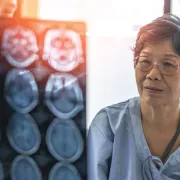
At the World Congress of Neurology, WHO Outlines a Global Roadmap to Make Brain Health a Universal Reality
15 Oct 2025
Neurological conditions now affect more than 40% of the population—over 3 billion people, according to WHO’s Global Status Report on Neurology, released at the World Congress of Neurology (WCN) in Seoul. The report provides a comprehensive assessment of countries’ responses to neurological conditions and sets a baseline for monitoring progress under the Intersectoral global action plan on epilepsy and other neurological to improve brain health and reduce inequalities.
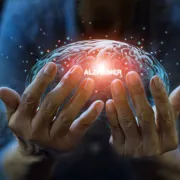
Prof. John Hardy Calls for a New Era of Precision and Possibility in Alzheimer’s Treatment
14 Oct 2025
At the World Congress of Neurology, Prof. Sir John Hardy (UCL, London) highlighted how decades of genetic and molecular research are driving real progress in Alzheimer’s care, with advances in amyloid therapies, microglial biology, and biomarkers paving the way for more precise diagnosis and treatment.
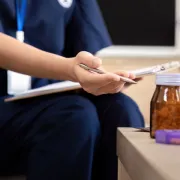
Prof. Sean Pittock Outlines a Bold New Era for Autoimmune Neurology — From Discovery to Targeted Immune Reset
14 Oct 2025
At the World Congress of Neurology, Prof. Sean Pittock (Mayo Clinic, USA) outlined new approaches that could accelerate lasting remission in rare autoimmune neurological diseases, including targeted CAR-T therapies, immune “reset” treatments, and innovative trial designs — marking a shift toward restoring immune balance and long-term recovery.
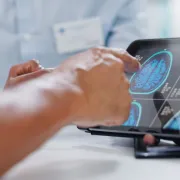
New Frontier in Brain Aging: Targeting Senescent Cells to Preserve Cognitive Health
14 Oct 2025
At the World Congress of Neurology, Dr. Mikołaj Ogrodnik revealed that senescent cells also accumulate in the brain, driving neurodegeneration and cognitive decline. He highlighted emerging senolytic therapies and advances in targeting cellular aging, pointing to new possibilities for reversing age-related brain dysfunction.
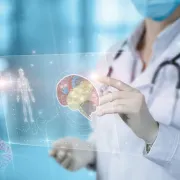
Prof. Charlotte Cordonnier Charts the Next Evolution in Stroke Care
14 Oct 2025
At WCN, Prof. Charlotte Cordonnier urged neurologists to apply lessons from the ischemic stroke revolution to intracerebral hemorrhage (ICH) care and research. 2025
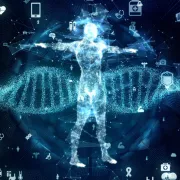
Professor Mary Reilly Highlights a Turning Point in Gene-Based Therapies for Inherited Neuropathies
14 Oct 2025
A rapidly evolving therapeutic landscape for inherited neuropathies — one in which gene silencing, gene editing, and biomarker-driven innovation are reshaping what is possible for patients once considered untreatable.
“After decades of mapping the genetic causes of neuropathy, we are finally treating them at their source,” said Reilly. “What once felt theoretical is now entering the clinic.”




